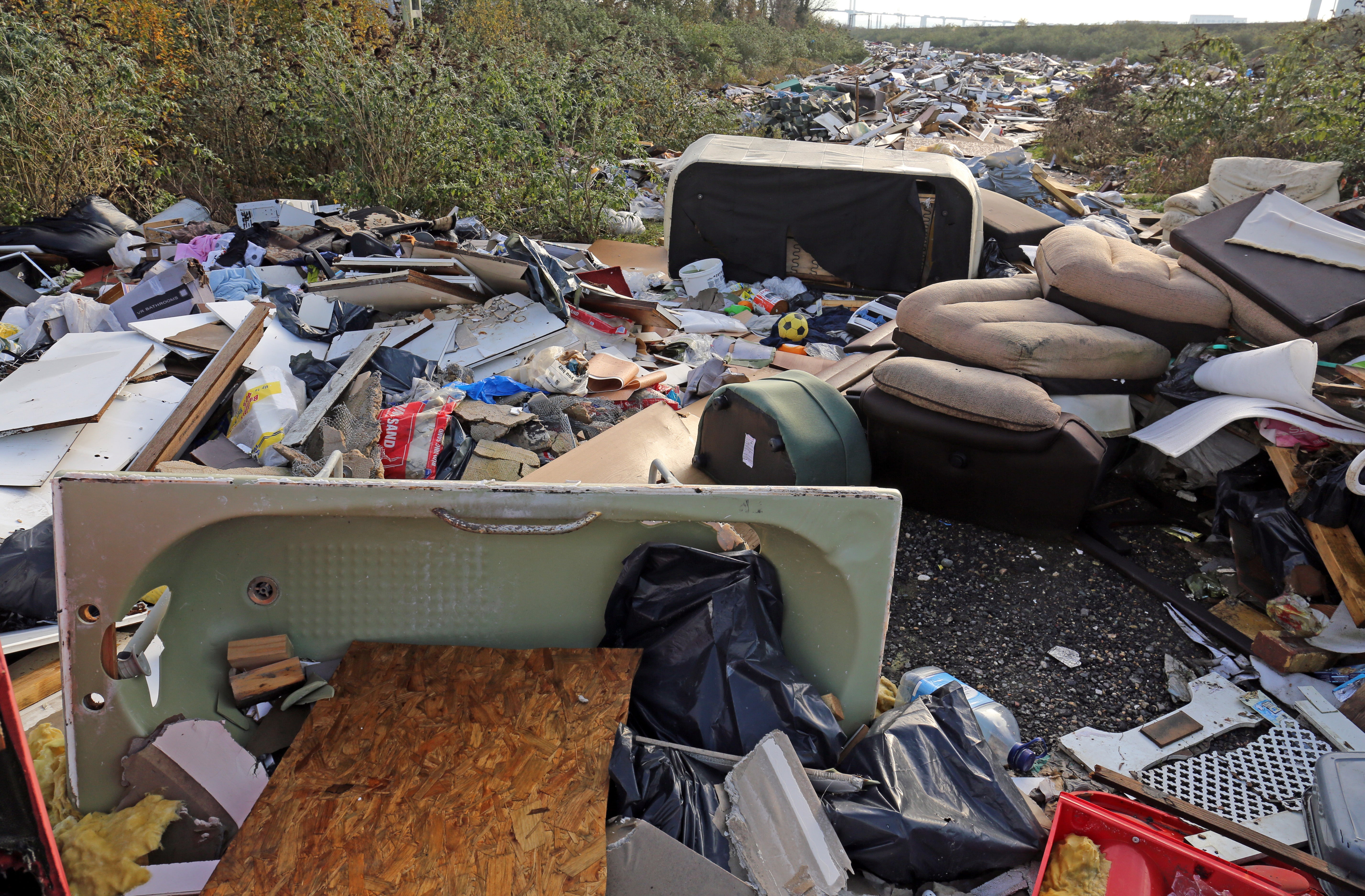Household DIY waste could be taken to the tip for free under Government plans
Old baths and showers, paving slabs and tiles could be disposed of without charge at waste and recycling centres.

Householders will be able to dispose of DIY rubbish at the tip for free in England under Government plans to curb fly-tipping.
Proposals put out for consultation would prevent councils from charging households for disposing of rubbish from their own renovation work, such as old baths and showers, paving slabs and tiles, at waste and recycling centres.
The aim is to reduce waste being put in domestic bins and cut the risk of fly-tipping, littering and burning of rubbish in gardens, which creates additional costs for councils and causes environmental problems.
Last year councils dealt with 1.13 million fly-tipping incidents ranging from black bin bags of household waste to white goods, tyres and construction rubbish, while private landowners also face many cases of illegally dumped waste.
Rubbish from construction or demolition works counts as industrial waste, and local authorities charge for its disposal, but despite guidance to the contrary, some councils charge for waste from household DIY work.
Under the plans, DIY work would not include full house renovations and work done by tradespeople, but could include homeowners tiling a kitchen, plumbing in a sink, plastering a room, building and installing shelving, or building a raised bed for a garden.
Rubbish from such activities carried out by householders in their own homes, and which is no more than a car boot-load, would be free to dump at the tip.
Councils that charge householders to dispose of DIY waste will be required to absorb any associated costs of the changes.
Some councils have had to introduce charges for this waste due to the rising costs of providing the service and the financial pressure they are under
The consultation launched by the Department for Environment, Food & Rural Affairs is also looking at ending the system of booking timeslots to visit a waste and recycling centre, introduced during the pandemic.
It warns that some booking systems are discouraging use of council waste and recycling centres, causing a risk of increased residual waste and fly-tipping.
A number of councils in England will also be awarded grants totalling £450,000 to tackle fly-tipping through trial projects, including CCTV to target hotspots.
Environment minister Jo Churchill said: “When it comes to fly-tipping, enough is enough. These appalling incidents cost us £392 million a year and it is time to put a stop to them.
“I want to make sure that recycling and the correct disposal of rubbish is free, accessible and easy for householders. No one should be tempted to fly tip or turn to waste criminals and rogue operators.
“Furthermore, the funding that we have announced for local authorities today will help them trial innovative new projects to put a stop to fly-tipping. We will learn from the successes – and replicate them.”
The Local Government Association, which represents councils, criticised the proposals, saying polling showed eight out of 10 people were happy with the way their local authority collects their rubbish.
David Renard, environment spokesperson for the LGA, said: “The disposal of non-household waste, such as DIY waste and tyres, is a non-statutory duty.
“As a result, some councils have had to introduce charges for this waste due to the rising costs of providing the service and the financial pressure they are under.
“Money raised from charges goes back into services so councils can continue to offer disposal facilities for these materials to residents, who would otherwise find them difficult to get rid of and will ensure that the system is not abused by those seeking to dispose of trade waste for free.”
He said many councils had continued the booking systems they brought in to deal with staffing pressure and ensure social distancing during the pandemic, as they had found it suits the needs of their area.
Bookmark popover
Removed from bookmarks